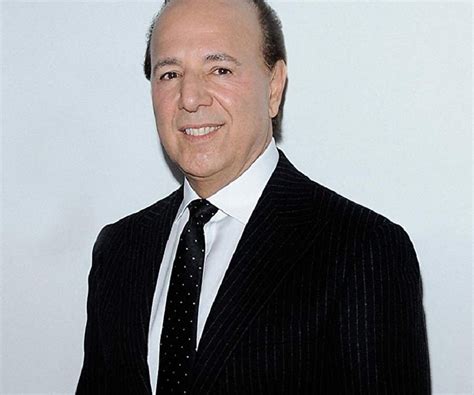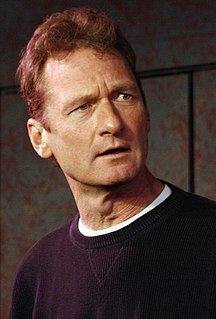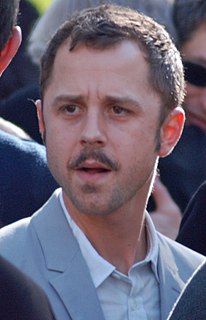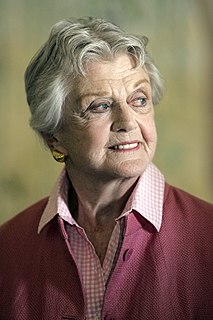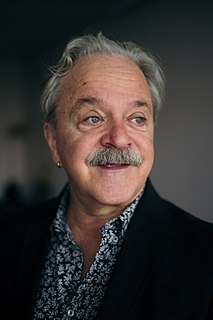A Quote by Matt Besser
Improv acting is not just saying the lines but connecting with the other actor.
Quote Topics
Related Quotes
I love performing. I love doing improv. It's a totally terrifying experience, but it's something that I've always felt so strongly about and that I'm kind of obsessed with. And just as an actor, it's a great exercise. It's a great playground, you know, to try things out and to work on your skills. Because the mandate of improv is kind of the same as acting: It's all about your scene partner, it's all about being present and in the moment and exploring together as a team, a collaboration.
Acting is many things. Acting is playing lines, of course, but it's much more profound than that. Acting is truth-telling, and trying to find the truth in a human situation, which will be sketched out by a screenwriter with all the skill that a screenwriter can do; but in the end, that's just the map of the journey. The actor's job is to divine and embody the truth, and find it.
I was on the improv team in high school, and after I graduated, I joined an improv company that had been established 10 years prior to me getting there. They did longform improv, and I fell in love with it. It's acting, character creation, collaborative, artistic expression and comedy - and it's scary. It was a big rush.
I think with improv - and I say it all the time because it's become such a catch thing that you talk about improv - if the scene is well-written, you don't need to improv. But that being said, if something strikes you in the moment and, most importantly, you know where the scene is supposed to go, it's no different than method acting.
I think in the inception and creation of the characters, improv was the most important part for me, because I wanted to feel at home in those characters. I wanted to feel like I could commit to them. And so much of improv is saying yes and committing, so I think that's where the improv came in. Even if I'm saying yes to the X across the room from me, or the tennis ball on a stick, I have to stay alive.
I do very little on-camera acting, so within a phrase as a voice actor you have to know how to convey when someone is 95 years old or 19 years old. . . When I was the lead singer of the California Raisins commercials there was a traditional actor there as well and he would do all these body movements without saying anything because he was "acting." And the only acting the microphone picked up on was silence.


